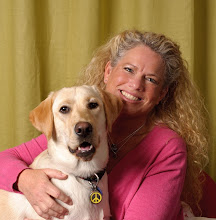


There was a recent local case of horrendous animal abuse and neglect, truly defining the words "puppy mill." It has tugged at the hearts of many of my clients who are very responsible pet owners, taking on only the amount of dogs, cats, even horses that they can actually afford to keep-understanding this means not only food (which is expensive these days!) but regular veterinary care as well. Even though it is hard to do, these types of owners also budget for the unexpected, when illness or injury befalls their pet as it did for Mikey yesterday. Yep, even I am in that category-you know I have the opportunity to acquire so many hard luck cases but practicality keeps me from doing so. When Verbal faced cancer 2 years ago, we had to juggle our finances and did just that to confer with the specialists and provide the radiation therapy that probably saved her life. I sure realize not all owners are able or even want to go to these lengths, but keeping things manageable is only fair to the pets.
Animal hoarding can actually be a form of mental illness, and as such, not being trained in counseling or therapy, we are not usually capable of effectively dealing with the people involved in these cases. You may know people who adopt every stray pet they come across, who claim to "rescue" abused animals from terrible situations, and do so over and over. They don't hesitate to offer to adopt a new animal, even several animals at once, and don't give consideration to the amount of time or expense these new additions will require. They don't ever have outside people over to their homes, and they may have windows that are papered or otherwise blocked out. It isn't uncommon for them to try medicating animals themselves with products bought at a feed or pet store before seeking veterinary care. They may have relationships with several different veterinary practices, but rarely follow through with care recommendations for pets brought in-often asking for medication for other pets that have symptoms "just like this one."
While this might not be overt animal "abuse," it can certainly be deemed "neglect," and as such, we can't ignore the situation, as tempting as that may be. An immediate call to law enforcement may be appropriate in some cases, especially if care recommendations are declined for an obviously suffering pet. Animal control officers will do the evaluation of the situation-we can feel safe in reporting suspected cases anonymously if needed, and it isn't our job to determine "guilt" or "innocence" of the charge. If the suspected hoarder is a friend or a once good client who has changed over time, working with that person may be OK.
If you decide to work with a suspected animal hoarder, you must develop a relationship with that person. It requires a slow, cautious, respectful approach and gradual building of trust. Show yourself to be trustworthy and honest, reliable and predictable to that person or they will likely shut you out. In conversation, see if this person has any concerns about their pets and if they have any plans already for constructive action. The best way to help make a plan is to see the home setting-offering to come over and establish a care plan is a good way to start. Avoid suggestions of getting rid of any animals until trust is established, but do make part of the plan "no new animals." Always demonstrate genuine concern for the pets and the person-but don't be judgmental. That sure can be hard to do.
If you just aren't able to build that kind of relationship, talk to an animal control officer for advice. They may have a history with that person, often with a different species of animal. Sometimes you can use the officer in a "good cop/bad cop" scenario-they will insist on the care conditions and you can be kind and compassionate and offer help in the plan.
There is nothing wrong with you having a big heart and wanting to help the animals in a crummy situation like this. It may mean that having an on-going relationship with this person will allow you access to the animals and ensure continued care. It could result in a big "bust" as happened with the tragic situation in the news with the hundreds of affected animals. Your big heart is fine just the way it is, open, generous and compassionate. Your eyes may be the only witness to the suffering of animals in need, and your intervention may be crucial in saving their lives. And be sure you keep your own animal family number manageable.
Peace,
DrReneigh

No comments:
Post a Comment